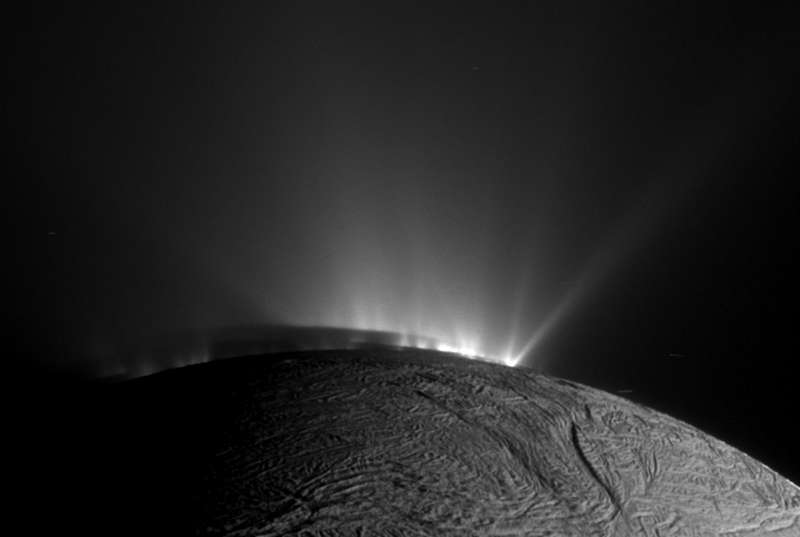Explanation: Why does Enceladus have ice plumes? The discovery of jets spewing water vapor and ice was detected by the Saturn-orbiting Cassini spacecraft in 2005. The origin of the water feeding the jets, however, remained a topic of research. A leading hypothesis held that the source might originate from a deep underground sea, but another hypothesis indicated that it might just be ice melted off walls of deep rifts by the moon's tidal flexing and heating. Pictured above, the textured surface of Enceladus is visible in the foreground, while rows of plumes rise from ice fractures in the distance. These jets are made more visible by the Sun angle and the encroaching shadow of night. Recent study of over a hundred images like this -- of geysers crossing Enceladus' South Pole, together with regional heat maps, indicate that these plumes likely originate from a hidden sea, incresaing the chance that this frosty globe might be harboring life.
Astrophysicists:
Browse 850+ codes in the Astrophysics Source Code Library
1999 2000 2001 2002 2003 2004 2005 2006 2007 2008 2009 2010 2011 2012 2013 2014 2015 2016 2017 2018 2019 2020 2021 2022 2023 2024 2025 |
Январь Февраль Март Апрель Май Июнь Июль Август Сентябрь Октябрь Ноябрь Декабрь |
NASA Web Site Statements, Warnings, and Disclaimers
NASA Official: Jay Norris. Specific rights apply.
A service of: LHEA at NASA / GSFC
& Michigan Tech. U.
|
Публикации с ключевыми словами:
Энцелад - Enceladus
Публикации со словами: Энцелад - Enceladus | |
См. также:
Все публикации на ту же тему >> | |
